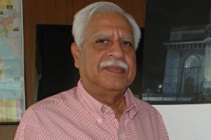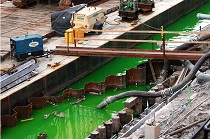Courtesy: Secretary of Defense
The Chinese have learned from Russia’s past mistakes at reforming state-owned enterprises (SOE), and some well-connected politicians have reaped the economic benefits that followed. Will the new administration in Beijing reform China’s SOEs or maintain the large role of government in industry?
Courtesy: WikimediaCommons
The new President and Premier of China will be formally elected at the 18th Party Congress of the Communist Party of China on November 8. Given the ongoing socio-economic issues and an increasingly independent army, will the new leadership bring about a change in China’s foreign policy?
Courtesy: alantankenghoe/Flickr
Over the past four years, China has switched from being an importer of high-speed trains to the world’s largest manufacturer. Much of this can be attributed to the transfer of foreign technology to Chinese state-owned enterprises. How have Chinese government policies and economic heft aided this effort?
 Courtesy: Gateway House
Courtesy: Gateway House
This October, China’s 18th Party Congress will usher in a new leadership in the Chinese Communist Party (CCP) and the People's Liberation Army, amidst increased turmoil in its neighbourhood. What consequences will this have on Indo-China relations, and on the policies of the Party?
 Courtesy: quinn.anya/Flickr
Courtesy: quinn.anya/Flickr
The ongoing environmental movement in China - like many of the country’s burgeoning social movements - and those involved in it, are using various strategies to demand one of democracy’s preconditions—the rule of law.



